We Can Measure Heart Risk in Your 30s. Medicine Waits Until Your 60s.
February 2, 2026
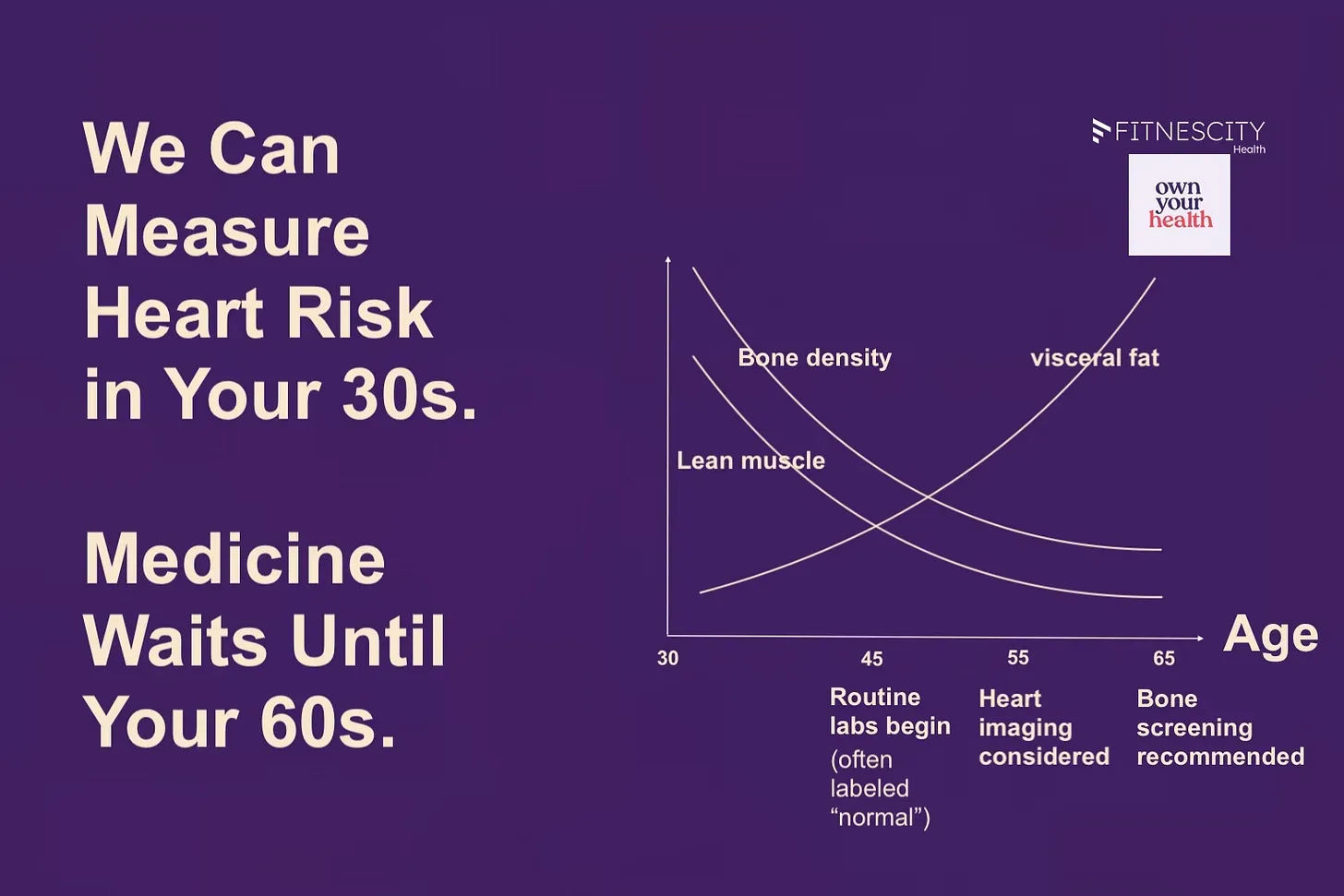
By the time heart risk is routinely taken seriously, decades of structural change have already taken place.
We Don’t Wake Up Sick. We Decline Quietly First.
December 18, 2025
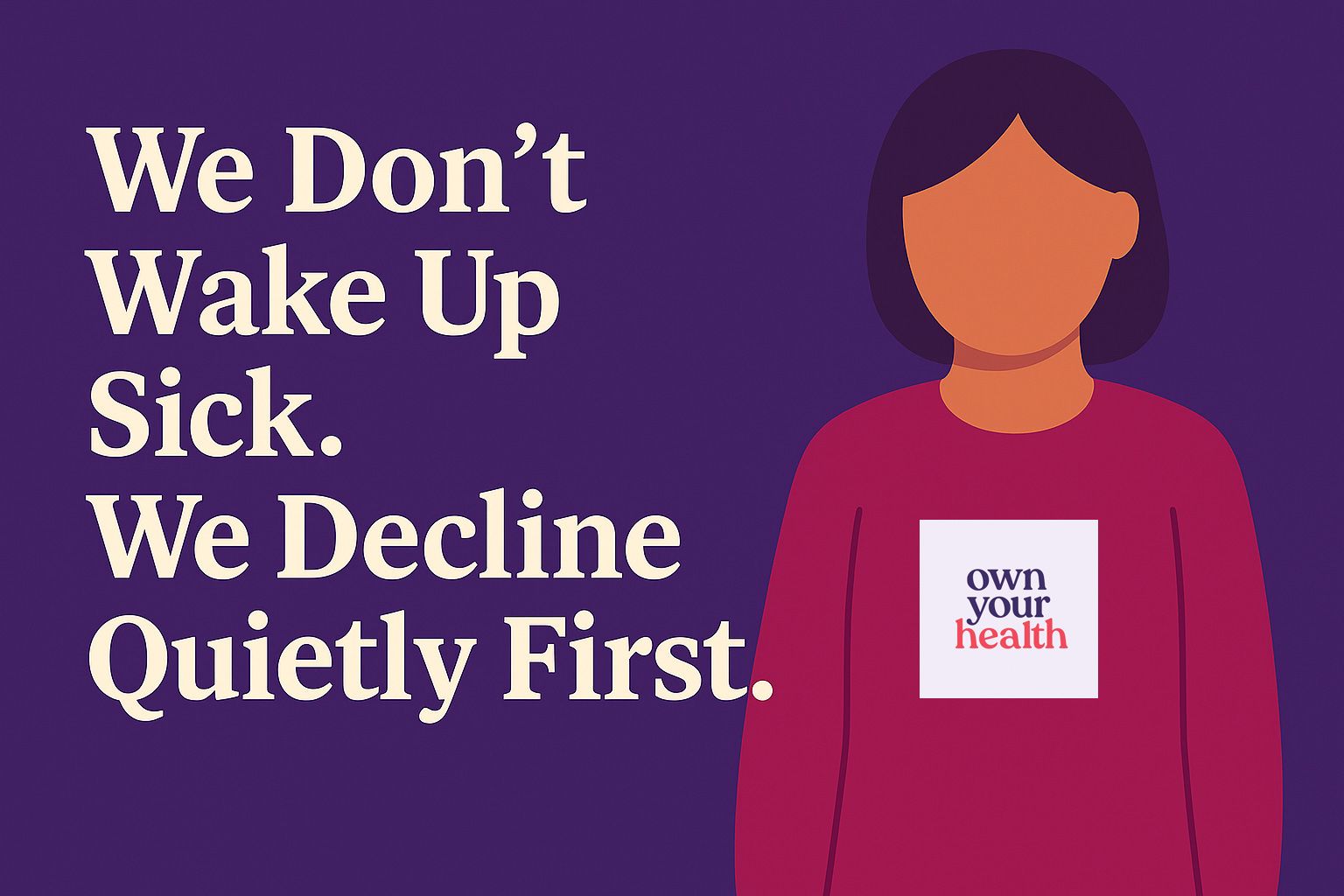
Most chronic diseases don’t begin with a diagnosis. They don’t start with a bad lab result or a sudden symptom. They start quietly.
The Silent Decline: Muscle Loss Starts Earlier Than We Think
December 8, 2025
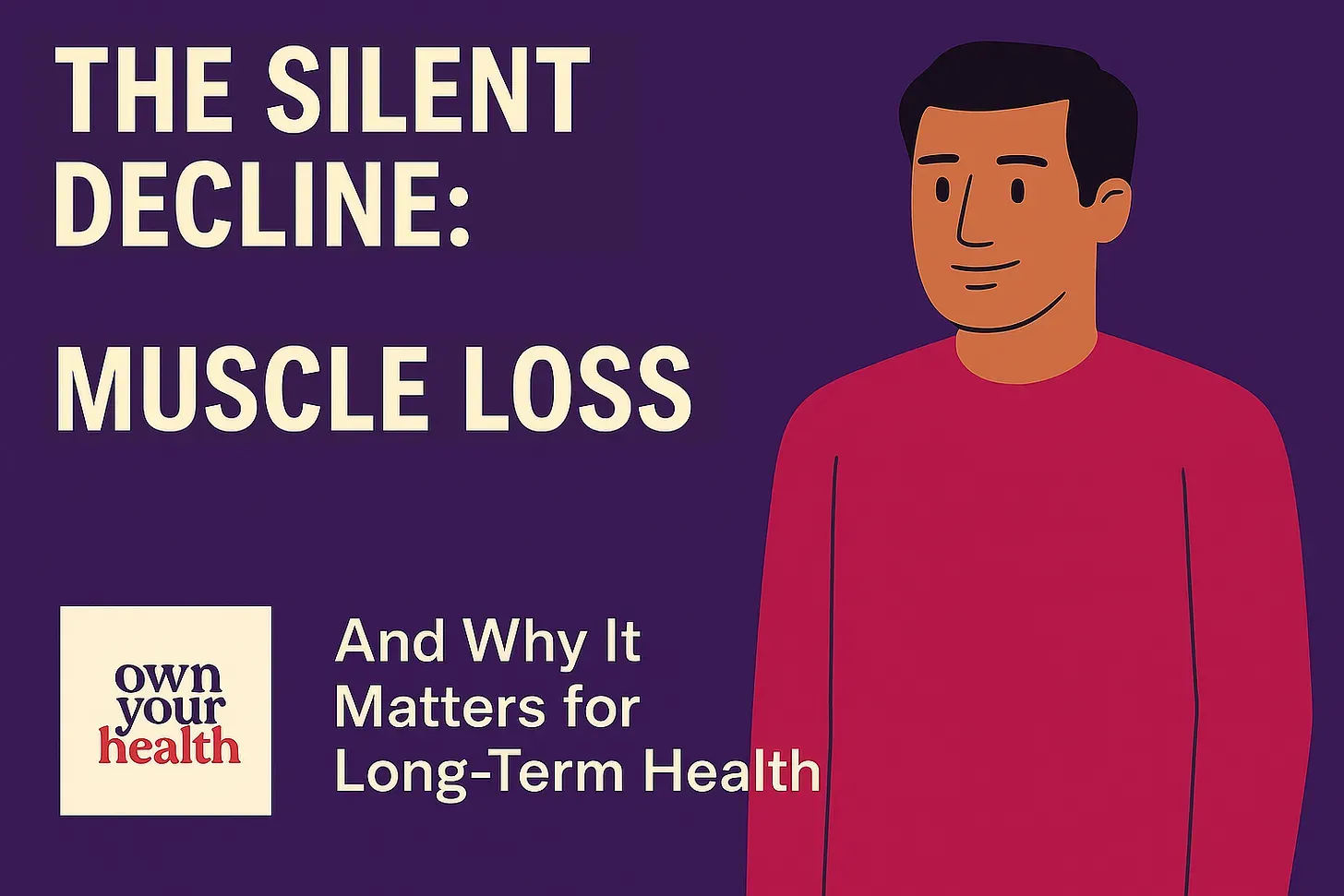
Most people assume muscle loss begins in their 50s or 60s. In reality, muscle erosion begins much earlier, often in our early 30s, and accelerates decade by decade.
What GLP-1 Taught Us About Human Behavior
November 25, 2025
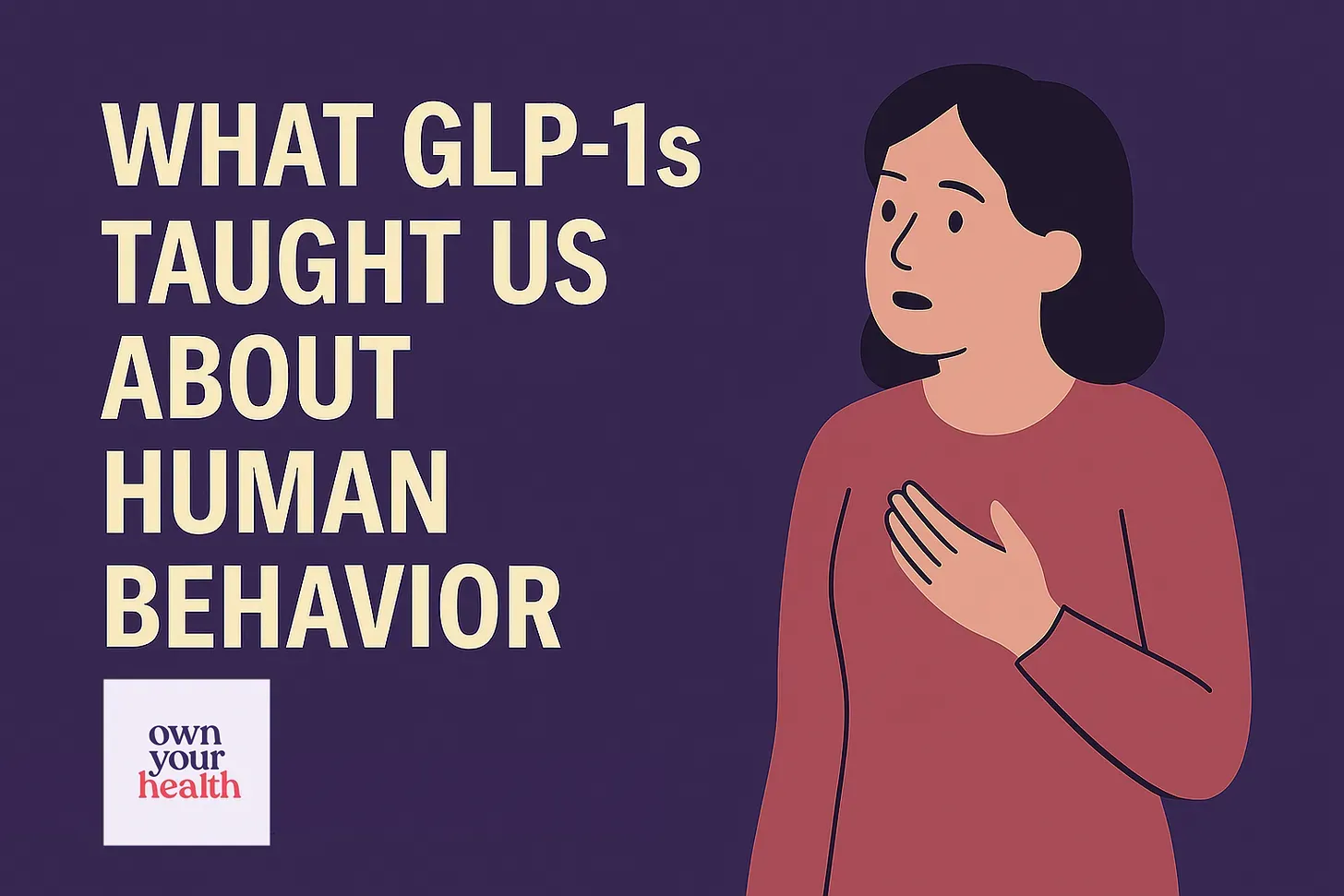
From doctors and investors to pharmaceutical companies, journalists, and influencers, everyone agrees thes
The Missing Test in Your Annual Physical
November 12, 2025
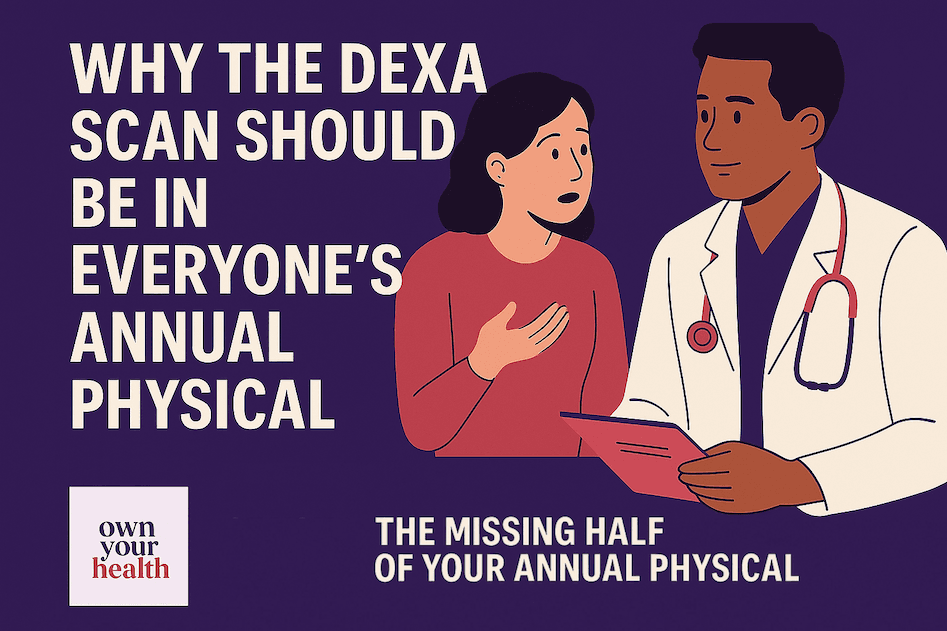
Blood tests show chemistry (glucose, lipids, hormones), but they can’t show structure: where fat is stored, how much muscle you carry, and whether your bones are quietly weakening.
Those three structural factors (visceral fat, skeletal muscle, and bone density) are independently tied to diabetes, heart disease, cancer, disability, and fractures. DEXA is the fastest, lowest-dose way to measure all three—objectively, in ~10 minutes.
The Test That Can Save Your Life
November 4, 2025
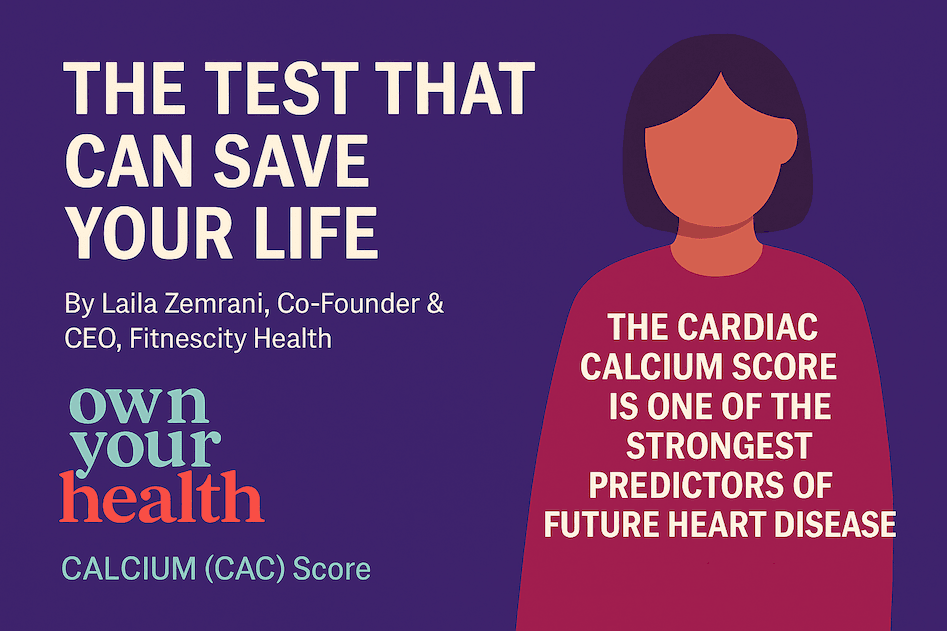
The Calcium Score Test uses a quick, non-invasive CT scan to measure the buildup of calcified plaque in the coronary arteries — the vessels that feed your heart with oxygen-rich blood. It takes only a few minutes, but the insight it provides can be life-changing.
The One Metric that Best Predicts Longevity
November 7, 2025
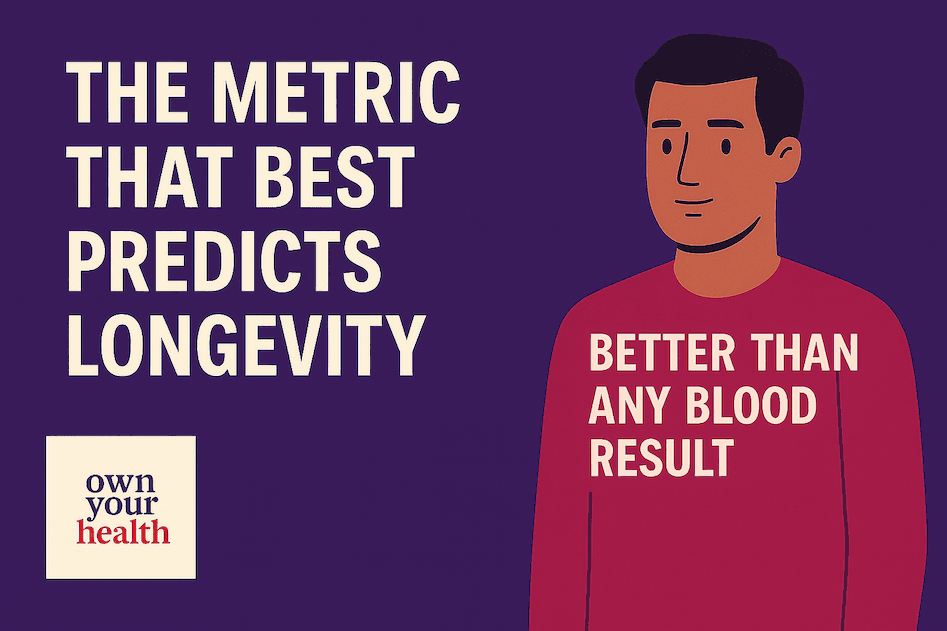
VO2 max — short for “maximal oxygen uptake” — measures how efficiently your body uses oxygen during intense exercise. Think of it as your aerobic engine. The higher the number, the better your body can deliver oxygen to your muscles, sustain activity, and recover.
A Note From the CEO
November 7, 2025

Five years ago, I started Fitnescity Health, a consumer health platform built to make health testing easy and accessible to everyone. Every day, I’m grateful for the privilege of seeing more and more people take ownership of their health — from the early days when I knew everyone of you by name, to today as our network spans nearly 1,000 test locations.
The Link Between Your Brain and Visceral Fat
October 14, 2025
We’ve known for a long time that obesity has a strong link to brain health. While many continue to use their BMI as a health indicator, emerging research suggests that we should reconsider focusing solely on weight and height as measurements.
Are We All Becoming Our Own Doctors?
October 15, 2025

A recent Wall Street Journal article described how patients are increasingly diagnosing themselves with health tests, wearables, and even AI chatbots.
Body Composition is Critical in Preventing Chronic Disease, Research Says
September 30, 2025
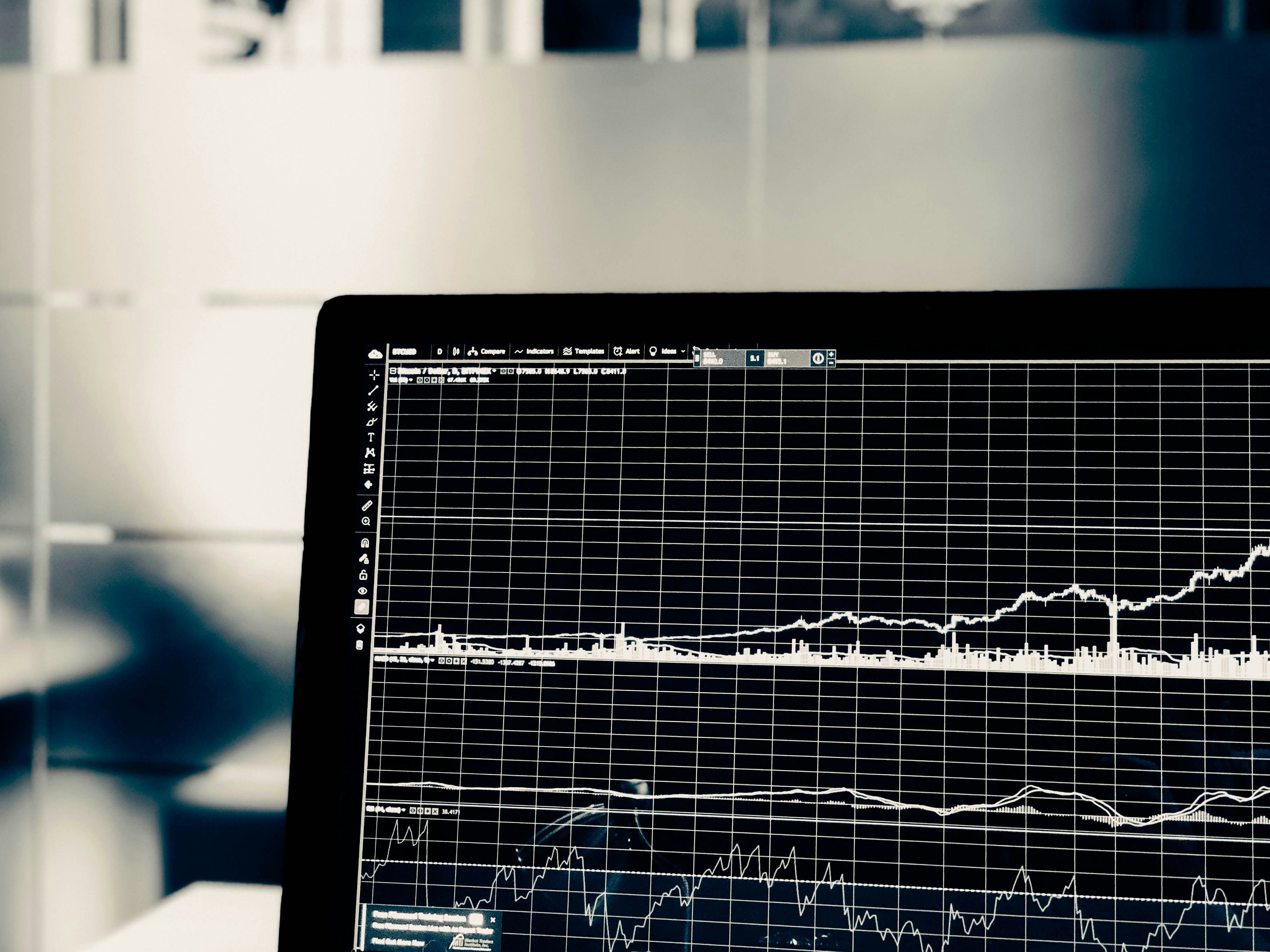
BMI, or body mass index, is commonly used to determine if you’re at a healthy weight or perhaps overweight, and to predict disease. However, new studies indicate that BMI alone is not an accurate indicator. Emerging research suggests that a comprehensive body composition analysis is more accurate in the prevention, diagnosis, and treatment of chronic diseases.
Introducing Fitnescity Health: A New Name, A Bigger Mission—Now with CT Calcium Score Testing
September 15, 2025

At Fitnescity, our mission has always been to empower individuals with accessible, science-backed health insights. Today, we're proud to announce a major milestone in that journey: Fitnescity is now Fitnescity Health.
Boosting Your VO2 Max: What Works?
September 10, 2025
How we measure fitness is always evolving and changing. One measurement that has become increasingly popular is the VO2 Max. VO2 Max tells you more about your body’s ability to consume and use oxygen when you’re exercising at a high intensity.
What's Your Heart Health Score
September 5, 2025

Now you know what a calcium score test is, how it’s done, and what the results can be.
As noted, a zero score is the most desired score. If your score is above zero, it means there’s an accumulation of plaque in your coronary arteries. Here, we will look at what you can do to maintain your score or improve your overall heart health, depending on your score.
What To Do After Your Calcium Score Test
September 10, 2025

Now you know what a calcium score test is, how it’s done, and what the results can be. As noted, a zero score is the most desired score. If your score is above zero, it means there’s an accumulation of plaque in your coronary arteries. Here, we will look at what you can do to maintain your score or improve your overall heart health, depending on your score.
Understanding Your Calcium Score Results
September 10, 2025

After your calcium score test, you will receive a score that shows how much calcium and plaque were found in your heart’s arteries. Understanding what your score means is essential, as it helps you know what steps, if any, you can take next. In this article, we will take a closer look at the ideal calcium score and what it could mean if your score is different from the ideal.
What to Expect During a Calcium Score Test
September 10, 2025

A coronary calcium scan is a quick way to learn more about your heart health. Your score can indicate if there is any plaque buildup in your arteries, and help you determine what to do next. If you decide to undergo a calcium score test, here are a few things to note before your appointment.
New Research Finds Body Fat Percentage is a Better Measurement for Predicting Mortality than BMI
July 2, 2025

Body mass index, or BMI, has been the standard used to gain a better understanding of one's health. This number takes into consideration the weight and height of a person. New research suggests that BMI is no longer an effective measure for assessing health and disease risk. In this article, we take a closer look at a recent study that found body fat percentage to be a superior measurement in predicting mortality.
Should You Get a Heart Scan? The What, When, and Why
May 20, 2025

As news about the CT heart scan helping save lives makes headlines, awareness of the procedure continues to increase. The scan, also known as a Calcium Score test or a coronary artery calcium scan, has gained significant popularity over the past few years. The procedure is frequently recommended by doctors, health influencers, and notable figures.
The Power of Calcium Scoring: The Test You Want to Read About for Your Heart Health
April 17, 2025

Every year, heart disease causes almost 18 million deaths. Cardiovascular disease, including heart attacks and strokes, is the leading cause of death globally and in the United States. Prevention is possible, but many people don’t take the necessary steps to detect conditions early on. Emerging research shows that calcium scoring is an excellent way to detect the risk for these diseases. Noticeable figures have emphasized the potential that lies in calcium scoring.